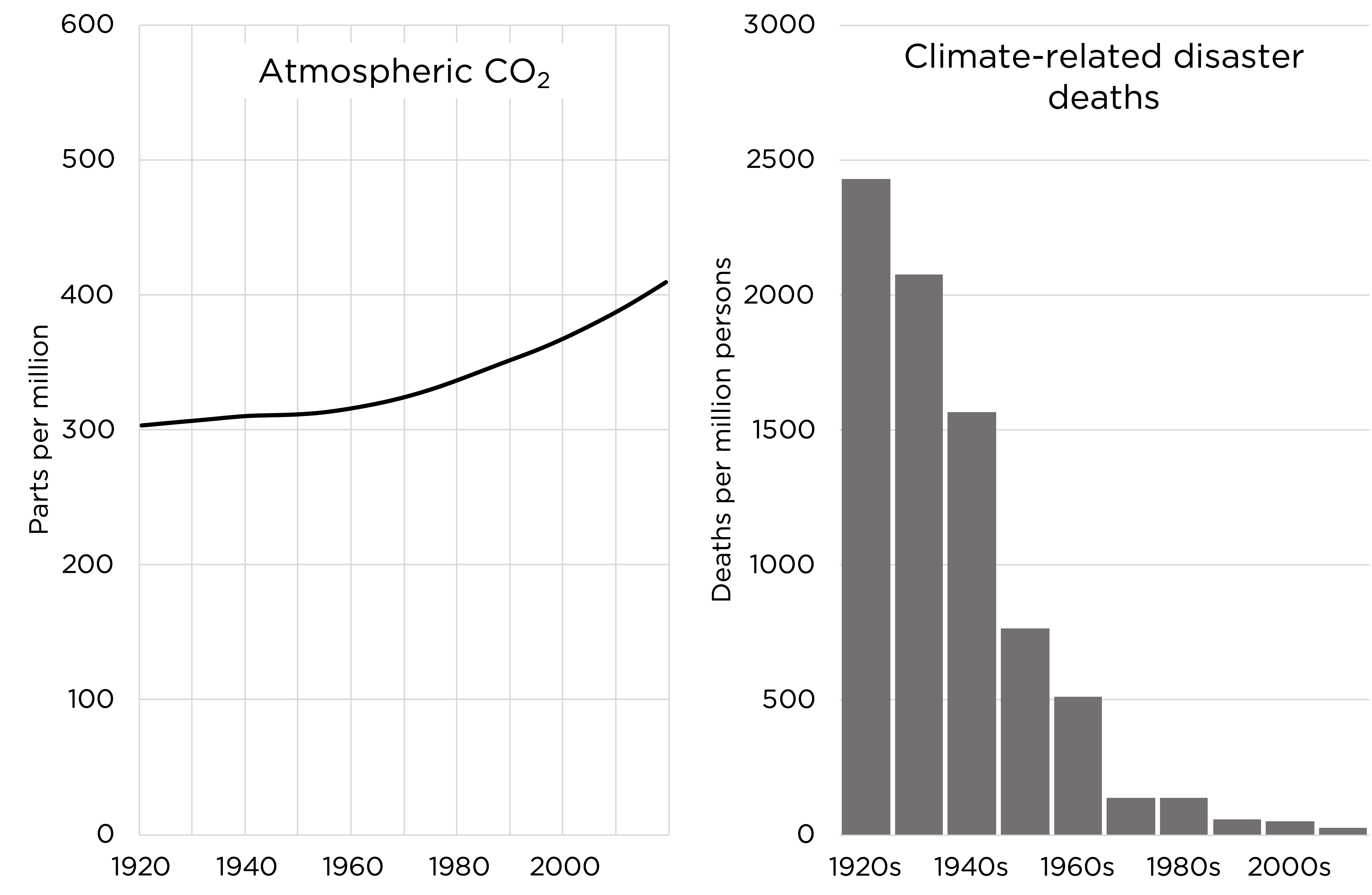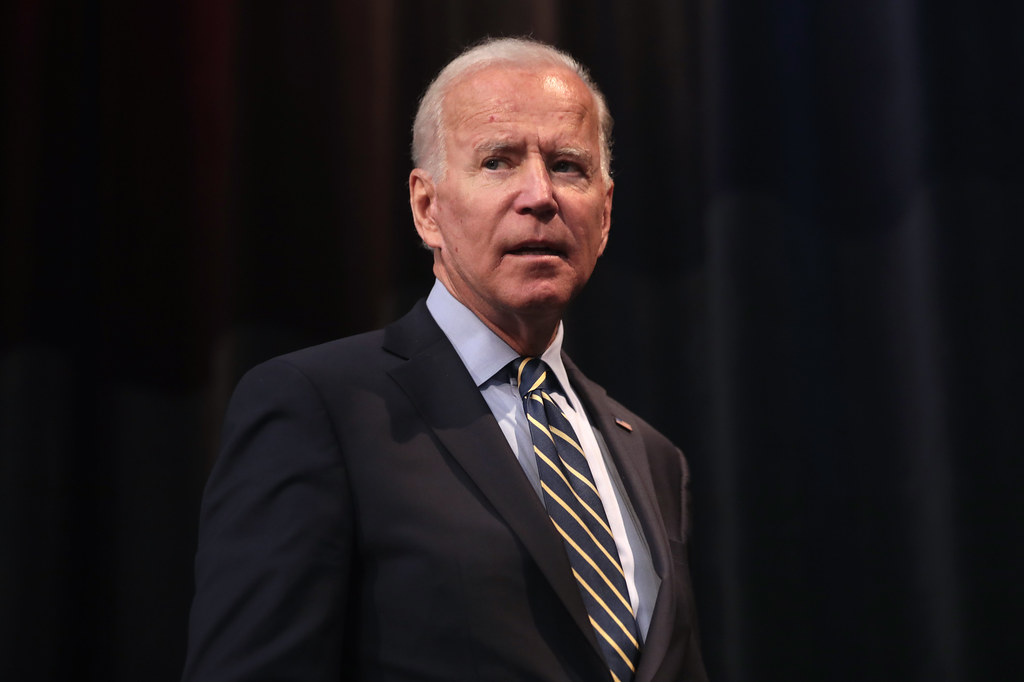Originally published on February 10, 2023
I can summarize the economic portion of Biden’s State of the Union speech in one word: evasion.
President Biden is evading responsibility for the consequences of the anti-freedom, anti-development, anti-fossil-fuel policies he has supported.
Things won’t get better until he’s held accountable.
-
In the economic portion of his State of the Union speech, Joe Biden focused on 3 problems: 1) the decline of US industry and infrastructure, 2) the global energy crisis, and 3) the supply chain crisis.
While Biden portrayed himself as the solution to all 3 problems, he is in fact a major cause.1
-
1: Biden’s role in the decline of US industry and infrastructure
Why have US industry and infrastructure declined?
Because industry and infrastructure require development—and we have, with Biden’s support, been passing anti-development environmental policies for 50+ years.
-
One of the anti-development environmental policies crippling American industry and infrastructure is the National Environmental Policy Act (NEPA).
The previous administration made some valuable NEPA reforms, which Biden immediately overturned.
Talking Points on the need for NEPA reform -
In his State of the Union speech Joe Biden repeatedly heralded the new infrastructure law. But that law, because it rejected NEPA reform, was actually an anti-infrastructure law that makes the projects it supports, along with many, many others, unnecessarily difficult.
Talking Points on the need for NEPA reform -
The root solution to our industry and manufacturing problems is to liberate responsible development. By totally failing to do this, Biden’s “buy American” policies will just subsidize inefficient operations and increase our cost of living even more.
-
In his State of the Union speech, Joe Biden asked “Where is it written that America can’t lead the world in manufacturing again?”
The answer: It is written in the endless anti-development industrial regulations that Biden is only adding to.2
-
2: Biden’s role in the global energy crisis
In his State of the Union speech Joe Biden portrayed the global energy crisis as a problem that he is solving. In fact, it’s a problem he has helped cause with anti-fossil-fuel policies—and is making worse with new anti-fossil-fuel policies.
-
Biden’s sole explanation for the global energy crisis was “Putin’s war.” But the root cause is global anti-fossil-fuel policies, supported by Biden—which made fossil fuel prices artificially high pre-war and prevented the free world from quickly increasing production in response.
-
Here’s an in-depth explanation I gave at a Congressional off-site last year of how the global anti-fossil-fuel movement, including the Biden administration, caused the global energy crisis—including its major impacts on inflation.
Testimony: "How the Biden Administration and the Global Anti-Fossil-Fuel Movement Caused an Energy Crisis and Inflated Our Cost of Living" -
As I have documented extensively, had Biden and other Democrats spent the last 3.5 years (including the 2 of the Biden admin) liberating US oil and gas investment, production, and transport instead of strangling them, energy would be far cheaper.
America’s energy crisis is mostly US Democrats’ fault -
Instead of taking any responsibility whatsoever for the disastrous shortage of fossil fuels today, President “I guarantee you, we’re going to end fossil fuel” Biden continues engaging in a denial campaign that blames everyone but him and his allies.
Talking Points on US Democrats engaging in epic denial on oil and gasoline prices -
Biden’s bragging about gasoline prices being “down $1.50 a gallon since their peak” is inane because 1) he helped cause that peak, 2) prices would be lower without his policies, and 3) his only downward influence has been irresponsibly draining the Strategic Petroleum Reserve.
How Biden’s abuse of the Strategic Petroleum Reserve to win votes harms our energy security -
Not only has Biden been a significant cause of the global energy crisis, he has taken actions to compound it by 1) passing the disastrous, anti-fossil-fuel “Inflation Reduction Act” and 2) continuing to threaten fossil fuel producers.
The “Inflation Reduction Act” is a 4-step recipe for destroying American energy -
Biden’s State of the Union speech threats to “Big Oil” and its “outrageous” profits will only compound one of his biggest energy sins: threatening the fossil fuel industry’s future (with lower profits) and then complaining that they won’t produce more.
-
Biden somehow thought he was reassuring oil companies and Americans by saying “we’re gonna need oil for at least another decade.” But this delusionally short-term view of oil’s future just signals he is going to keep harming the industry.
Republicans laugh hysterically when Biden says "we're gonna need oil for at least another decade!" -
To justify his past and present anti-fossil-fuel policies, Biden claimed—with no evidence—that there is a “climate crisis” that's an “existential threat.” Whereas in reality there is “climate change” but thanks to increasing resilience a rapid decline in climate disaster deaths.3

-
Here’s a full explanation of how the false equivalence between “climate change” and “climate crisis” has caused today’s global energy crisis.
How a fake climate emergency created a real energy emergency -
Until Biden and the rest of the anti-fossil-fuel movement are held accountable for causing the global energy crisis, they will continue to compound that crisis by continuing to oppose fossil fuel investment, production, refining, and transport.
-
3: Biden’s role in the supply chain crisis
In his State of the Union speech Biden blamed the supply chain crisis on “the pandemic.” But Biden and others bear responsibility for pro-lockdown pandemic policies that caused massive unnecessary damage.
-
The supply chain crisis is caused in part by bad pandemic policies but also by general hostility toward industry, development, and economic freedom by the Biden administration and many other world leaders–hostility that makes it hard for supply chains to recover.
-
For a pro-freedom approach to Covid-19 and other infectious diseases, see this excellent white-paper (which I am proud to have been a contributor to) by philosopher Onkar Ghate of the Ayn Rand Institute.
Ayn Rand Institute - A Pro-Freedom Approach to Infectious Disease -
Summary: President Biden’s State of the Union speech systematically evaded responsibility for the disastrous consequences of the anti-freedom, anti-development, anti-fossil-fuel policies Biden has supported.
Going forward, we need 1) accountability and 2) alternatives.
-
Those who object to President Biden’s terrible economic policies, especially energy policies, need a positive alternative. I believe the best alternative in the realm of energy is The Energy Freedom Platform.
The Energy Freedom Platform -
To promote energy freedom, Congress should hold hearings on these 4 (and other) energy-related topics. If any elected officials would like my help on this or any other aspect of promoting energy freedom, send me an email at alex (at) alexepstein (dot) com.
4 energy hearings the House should hold
References
-
White House - Remarks of President Joe Biden – State of the Union Address as Prepared for Delivery↩
-
White House - Remarks of President Joe Biden – State of the Union Address as Prepared for Delivery↩
-
UC San Diego - The Keeling Curve
For every million people on earth, annual deaths from climate-related causes (extreme temperature, drought, flood, storms, wildfires) declined 98%–from an average of 247 per year during the 1920s to 2.5 in per year during the 2010s.
Data on disaster deaths come from EM-DAT, CRED / UCLouvain, Brussels, Belgium – www.emdat.be (D. Guha-Sapir).
Population estimates for the 1920s from the Maddison Database 2010, the Groningen Growth and Development Centre, Faculty of Economics and Business at University of Groningen. For years not shown, population is assumed to have grown at a steady rate.
Population estimates for the 2010s come from World Bank Data.↩
